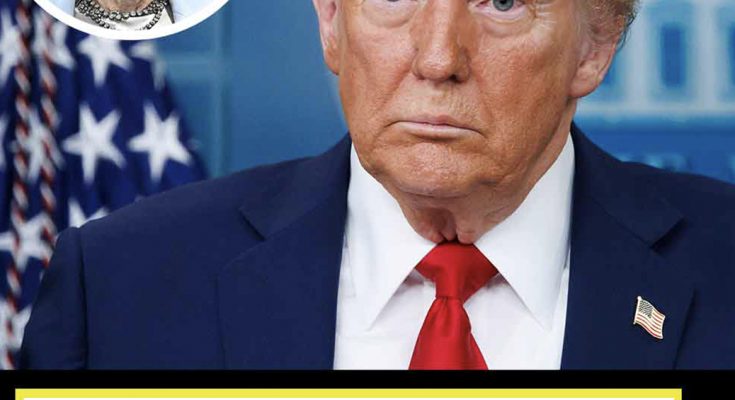
He’s attended the gala in the past and once even proposed on the way there. This year, sadly, Donald Trump was not welcome at the Met Gala – and reportedly hasn’t been for a long time.
Every annum, as the inaugural Monday of May unfurls, the celestial echelon of couture and stardom descends upon the crimson tapestry of the Met Gala in New York City—a ritualistic convergence steeped in grandeur and spectacle. Yet this year, amid the parade of opulence and avant-garde expression, one notably polarizing figure remained conspicuously absent: former U.S. President Donald J. Trump.
Exile from the Gilded Steps: Trump’s Met Gala Ouster
The rationale behind Trump’s exclusion requires little excavation. The gatekeeper of this sartorial sanctum, Anna Wintour—Vogue’s imperious editor-in-chief and the perennial steward of the Gala since 1997—declared, with unequivocal finality, that Trump’s name had been eternally struck from the guest register.
“He shall never be extended an invitation again,” Wintour solemnly professed during an appearance on The Late Late Show with James Corden in 2017.
This pronouncement, reportedly etched into policy not long after Trump’s ascension to the presidency, has retained its rigidity well into his subsequent political chapter. The embargo remains ironclad, undisturbed by the shifting winds of public favor or political theater.
Trump’s Bygone Dalliance with the Met
Trump’s relationship with the Met Gala is neither negligible nor peripheral. In the twilight decades of the 20th century—the brazen ’80s and the tumultuous ’90s—he frequented the event with performative regularity, often arm-in-arm with former spouses Ivana Trump and Marla Maples. He was no stranger to the camera flashes or the couture, once a fixture in the constellation of boldface names that define the Gala’s mythos.
But times mutate, and so do thresholds of tolerance.
What was once a playground for the mogul has now become a fortress from which he is resolutely barred, a silent but thunderous repudiation from fashion’s highest citadel.

Back in 2004, Donald Trump orchestrated a spectacle of personal grandeur en route to the Met Gala by proposing to Melania Trump—a theatrical flourish that instantly set the American tabloid sphere ablaze with fervent fascination.
Yet, as the years have unfurled, the essence of the Met Gala has undergone a subtle but unmistakable metamorphosis. Once an ostentatious parade of glamor untethered to the currents of ideology, the event now walks a precarious tightrope between aesthetic reverence and sociopolitical resonance. While Anna Wintour has long maintained that the Gala’s soul is steeped in “beauty, ingenuity, and historical echo,” the unspoken calculus behind the invitation list suggests that certain values—namely, those aligned with contemporary cultural consciousness—now wield the greater gravity.
And Trump is not the lone exile.
According to the New York Times, several high-profile confidants of the former president were glaringly absent from this year’s guest constellation. Among the missing were tech titans Elon Musk—once a perennial face on the steps—alongside Amazon’s Jeff Bezos and Meta’s Mark Zuckerberg.
In a move both timely and unmistakably potent, the 2025 Gala unfurled under a charged banner: Superfine: Tailoring Black Style. A thematic ode to the ingenuity of Black designers and the sartorial defiance Black communities have wielded to subvert societal archetypes, the evening was soaked in subtext and intention.
Cultural commentator Louis Piscano distilled the mood with piercing clarity: “The theme broadcasts its intent with no room for ambiguity.”
And so, in an era where fashion speaks louder than words, exclusion is no longer just a matter of aesthetics—it is a statement.



